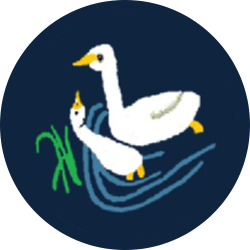History
The World is ours to Explore
Intent
At Church Aston Infant School our History curriculum is designed to inspire young historians to discover their past from living memory and begin to look beyond. We ensure that we provide our children with the skills and knowledge to enable them to understand how the world and its people have changed over time. We want our children to understand that the world we live in today has been shaped by the actions and movements of people, and events, from the past. Our understanding of history is forever evolving, we strive to ignite a passion for enquiry and broaden young minds to discover and learn about our wonderful world. Through well planned and structured lessons we aim to develop confident learners who explore exciting periods of our history making links and showing a chronological awareness of the past. We provide opportunities for them to explore the history of the local area and the wider world and the significant achievements of individuals. Our curriculum provides opportunities to revisit and review learning and make links between subjects, ensuring all children can make progress in their learning. We are always aiming for our children to know more and remember more and in so building their awareness of our world and its past.
Implementation
By the end of KS1 we aim for our pupils to have an awareness of the past, using common words and phrases relating to the passing of time. We aim for pupils to know where the people and events they study fit within a chronological framework and identify similarities and differences between ways of life in different periods. Our History curriculum builds progressively from the earliest foundations in Reception where children are engaged in Understanding of the World which leads into KS1 and the National Curriculum Expectations and outcomes for KS1. Progression in skills and knowledge are outlined in our progression grids which ensure knowledge is developed and extended throughout each year group. Each of our topics focus on key questions and have a variety of contexts to stimulate interest and to ensure breadth of coverage. Topics we study include, for example, the history of the village of Church Aston, the history of toys, homes, travel, space exploration, flight, castles, early adventures to the Artic, the legacy of Mary Anning and The Great Fire of London. By delving into these exciting topics in history we help pupils gain a coherent knowledge and understanding of Britain’s past and that of the wider world. Our Subject Leader and teachers work closely to ensure that teaching is progressive and provides opportunities for children to work with well-designed sequences of lessons that build knowledge over time. Children are assessed on their historical knowledge through questioning and discussions to enable teachers to ascertain the next steps for them, and to gain an understanding of the progress and expectations that they have met. Our children have opportunity to express what they have been learning about in History on a regular basis and this is encouraged throughout the school day for example in assemblies and through reading of quality History based texts and the recognition of events for example Remembrance Day and King Charles III Coronation. Children in Reception are assessed at the end of the year in Knowledge and Understanding of the World to identify if they are at expected or emerging and this is shared with Year 1 teacher/s. Year 1 and Year 2 children are assessed to evaluate if they are working towards or at age related expectations. Outcomes are shared with parents.
Impact
Our History curriculum is planned to demonstrate clear progression and show that children develop the historical knowledge and skills to explore and understand the world around them. Lessons are designed to shape inquisitive learners who ask relevant questions and enjoy finding out more about the history of the world that they live in and how this has changed life today. Our children are ready and able to talk about their knowledge and to express what they know and what they have been learning about. They are building an understanding of why it is important to learn about History. This is evident through pupil voice, assemblies, responses to visitors and in the work they produce.
